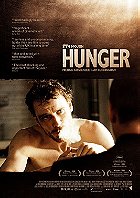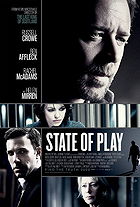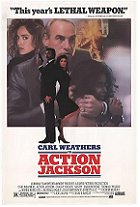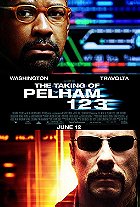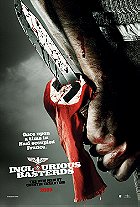The concept of an Australian comedy featuring the once-in-a-lifetime pair-up of Paul Crocodile Dundee Hogan and Shane Kenny Jacobson would appear foolproof. And while this movie doesn't live up to all of its potential, Charlie & Boots (the sophomore effort of director Dean Murphy, who previously collaborated with Paul Hogan for 2004's Strange Bedfellows) is an endearing, heart-achingly poignant, sweet dramedy. This is a film infused with so much heart that even the feel-good clichés come across as charming, and it's simply an ideal vehicle for its two primary stars. Just how well it'll play for an international audience is a mystery, though.

Structured in the form of a conventional road-trip picture, the storyline here is straightforward. After the tragic death of his beloved wife Grace (Peggy Thompson), Charlie (Paul Hogan) - a hardworking farmer - is left devastated and withdrawn. On a whim, his older son Boots (Shane Jacobson) decides to take an impromptu fishing trip with Charlie in the hope it will shake his old man out of the doldrums and perhaps repair the rift in their relationship. Once Boots climbs into the car, Charlie informs him they'll be travelling from their Victorian hometown all the way up to Cape York (thousands of kilometres away) for a spot of fishing off the country's northernmost tip (a trip long promised but never accomplished). Charlie is at first none-too-cooperative, but Boots does his best to be upbeat. Along the way, they pick up an attractive young female hitchhiker with boyfriend trouble (Morgan Griffin), and they fend off a succession of older women who are interested in Charlie.
Gradually, as the trip unfolds, an uneasy companionship emerges as the protagonists begin to learn more about each other and the dramas that ruptured their lives. A motion picture that celebrates the relationship between father and son, Charlie & Boots is sublimely warm and good-natured. The movie exposes family conflicts and observes the protagonists as both of them divulge emotional revelations while their relationship is gradually placed back on track. In a sense, Charlie & Boots can be perceived as a picturesque tourist guide of rural Australia - during their travels, the characters encounter the Grampians, Tamworth, Forbes, Tenterfield and even the spectacular Great Barrier Reed. A lot of these locations are low-key (Baz Luhrmann wouldn't have used them), and Roger Lawson's cinematography does justice to them. Dean Murphy's competent direction keeps things wonderfully minimalist and naturalistic (an efficient set-up that poignantly observes Charlie's grief is a particular highlight), while Dale Cornelius' delightful score adds yet another layer of enthralling flavour. Sure, the film may be little more than a mere string of vignettes that adhere to a similar formula, but it all comes together nicely.

Charlie & Boots is heavily laced with dry Aussie wit that's well suited to Australian audiences, who should also readily identify with the characters and be touched by their warmth. There are a number of laughs to have here, with most of the humour being derived from witty writing (like Charlie's attitude towards a paddle-steamer) and a number of hilarious comedic set-pieces (such as a sequence involving a dim police officer). Yet despite the film's strong points, there are inherent problems with Murphy and co-writer Stewart Faichney's screenplay. The central problem is that the whole thing is incredibly by-the-numbers - it's your standard road-trip movie which obeys the rules of the genre (it's obvious from the outset that Charlie and Boots will patch up their relationship, for instance). While it could additionally be argued that the laughs are a tad limited considering the talent involved, the material bridging the comic material is solid - there's always something interesting going on, and the drama feels more affecting than forced.
A film joining the comic talents of Paul Hogan and Shane Jacobson was a terrific idea (however tenuous their physical resemblance), and their pair-up here is wonderful. Hoges is his usual brilliant self as Charlie; delivering a trademark performance that has echoes of his glory days. The former Crocodile Dundee star is able to express an inner sadness that's deeply affecting, and the gradual breaking down of his character's bitterness and reserve is effectively conveyed. Meanwhile, Shane Jacobson is pitch-perfect - likeable, sympathetic and above all relatable as Boots (whose real name is revealed in an amusing, nicely judged scene). He perfectly embodied the hard-working Aussie bloke in the 2006 hit Kenny, and in Charlie & Boots, he brilliantly pulls off this type of role once again. In the supporting cast, there's the lovely young Morgan Griffin, who would've been 16 or 17 during production. Griffin brings a delightful warmth and buoyancy to the material, and an audience will miss her (as the boys do) when she abruptly departs from the story. The movie is in loving memory of Reg Evans, who plays an amusing minor role in the movie, and who died in the 2009 Victorian bushfires.

All things considered, Charlie & Boots is a pleasant, down-to-earth, enjoyable little Aussie film of male bonding which is both funny and touching. Its charm is very pervasive, and it's difficult not to yield to it. Any Australian who has ever taken a multiple-day road trip will easily relate to the situations the protagonists encounter (car trouble, snoring relos, etc). Charlie & Boots may be a highly clichéd affair, but it'll surely plant a smile on your face - and who can complain about that? Be sure to watch until after the end credits for a bonus laugh.
7.9/10
 Login
Login
 Home
Home 183 Lists
183 Lists 1670 Reviews
1670 Reviews Collections
Collections
 0 comments,
0 comments, 